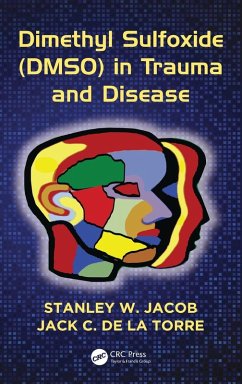Many toxic and potentially lethal molecules suppressed by DMSO include chemokines, interleukins, tumor necrosis factor, thromboxane, tissue factor, thrombin, and glutamate excitotoxicity. Supplying a critical analysis of the scientific research, this book explores how the chemical structure of DMSO is able to react and deactivate toxic molecules generated by DNA damage, free radical formation, inflammation, infection, and tissue injury. Designed for healthcare workers, clinicians, and basic scientists, it explores the biological diversity and medical applications of DMSO.
For the first time, the collective data on the biological, chemical, and medical actions of DMSO are presented and analyzed from the published scientific literature. This book examines the major clinical uses of DMSO in humans as supported by basic evidence derived from experiments in animals, including its effects in disorders such as osteoarthritis, interstitial cystitis, gastrointestinal inflammatory changes, scleroderma, respiratory distress, myasthenia gravis, cardiac disease, traumatic brain injury, and Alzheimer's disease. The actions of DMSO on pain, cancer, stroke, and spinal cord injury are also discussed.
For the first time, the collective data on the biological, chemical, and medical actions of DMSO are presented and analyzed from the published scientific literature. This book examines the major clinical uses of DMSO in humans as supported by basic evidence derived from experiments in animals, including its effects in disorders such as osteoarthritis, interstitial cystitis, gastrointestinal inflammatory changes, scleroderma, respiratory distress, myasthenia gravis, cardiac disease, traumatic brain injury, and Alzheimer's disease. The actions of DMSO on pain, cancer, stroke, and spinal cord injury are also discussed.








